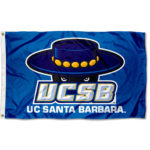CA APPEALS ‘Serious, Serious Questions.” UCSB Denies Due Process to Accused Male
Last week, a three-judge California appellate panel heard the first of at least five appeals in campus due process cases against the University of California-Santa Barbara. Oral argument came before Justices Arthur Gilbert, Steven Perren, and Kenneth Yegan, each of whom seemed dubious about UCSB’s handling of the case. At one point, Justice Gilbert acknowledged that “we’ve really tipped our hand” in revealing the panel’s “serious, serious questions” about the due process given to the accused student. Justice Perren was the most skeptical of the university’s actions. He noted that, “I read this record, and I was stunned at a university procedure which purports to be fair and equitable puts a kid [the accused was a freshman] who’s attempting to get a college education in the position of, essentially, a lawyer in a major sexual assault case.” UCSB’s lawyer pushed back on this point, claiming that Perren had minimized the trauma of the victim. This point brought a strong rejoinder from Perren, who noted that “your argument assumes its conclusion”—that the accuser was, in fact, a victim. Much of the hearing focused on what would happen if the court sided with the accused student. Justice Gilbert raised this early on, wondering what would happen if the court just decided UCSB denied due process—and what occurred if the court found there was no substantial evidence of guilt at all. Justice Yegan, meanwhile, focused on the appearance of unfairness—noting that the university was, in effect, investigating and judging itself, instead of choosing to have an outside adjudicator. He also worried about the unfairness of a process in which the accused student’s lawyer could not speak, but the university’s counsel could. The university’s lawyer, Jonathan Miller, defended the procedures by repeatedly claiming that mandates from Title IX and OCR required the university to adjudicate sexual assault claims. But nothing from OCR requires (as happened here) the accused student to have a silent lawyer or not to be able to gather and present expert testimony.
academicwonderland.com By KC Johnson

